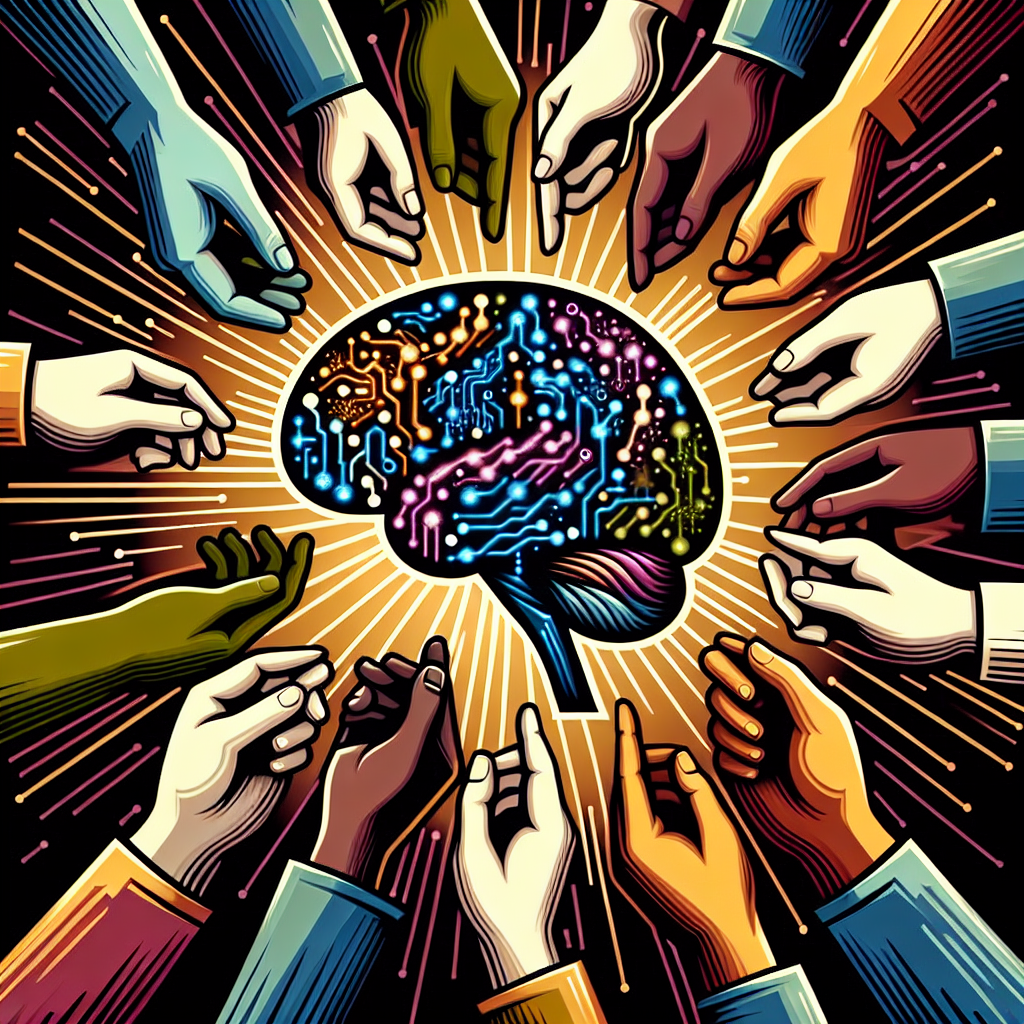The Democratization of AI: Breaking Down Barriers
Artificial Intelligence (AI) has rapidly become a transformative technology across various industries, from healthcare to finance, and even entertainment. However, the development and deployment of AI have historically been limited to a select few, primarily large tech companies and research institutions with the resources and expertise to harness its power. This has led to concerns about the democratization of AI, or the idea that access to AI technologies should be more widely available to individuals and organizations of all sizes.
In recent years, there has been a push towards democratizing AI, with efforts focused on breaking down barriers that have traditionally prevented wider adoption of AI technologies. These barriers include issues such as cost, expertise, and access to data. By addressing these barriers, the democratization of AI has the potential to unlock new opportunities for innovation and growth across industries.
Cost
One of the primary barriers to the democratization of AI has been the high cost of developing and deploying AI technologies. Historically, AI has required specialized hardware and software, as well as skilled data scientists and engineers to develop and implement AI solutions. This has made it difficult for smaller organizations and startups to access AI technologies.
However, recent advancements in cloud computing and AI-as-a-service platforms have made it easier and more affordable for organizations of all sizes to access AI technologies. Cloud-based AI platforms such as Google Cloud AI, Amazon Web Services (AWS) AI, and Microsoft Azure AI, provide access to pre-trained AI models and tools that can be easily integrated into existing systems. This has significantly reduced the cost and complexity of developing AI solutions, making it more accessible to a wider range of organizations.
Expertise
Another barrier to the democratization of AI has been the lack of expertise required to develop and deploy AI technologies. Traditionally, AI has been a highly specialized field that requires advanced knowledge of machine learning algorithms, data science, and programming languages such as Python and R. This has made it difficult for organizations without the necessary expertise to harness the power of AI.
To address this barrier, there has been a growing emphasis on making AI more user-friendly and accessible to non-experts. Tools such as automated machine learning (AutoML) platforms, which automate the process of building and deploying AI models, have made it easier for individuals with limited technical knowledge to create AI solutions. Additionally, educational resources such as online courses and tutorials have made it easier for individuals to learn the basics of AI and machine learning.
Access to Data
Access to data has also been a significant barrier to the democratization of AI. AI technologies rely on large amounts of high-quality data to train models and make accurate predictions. However, many organizations lack the necessary data infrastructure and resources to collect, store, and analyze data effectively.
To address this barrier, there has been a growing focus on data sharing and collaboration within the AI community. Initiatives such as open data repositories and data-sharing agreements have made it easier for organizations to access and share data for AI research and development. Additionally, advancements in data privacy and security technologies have made it easier for organizations to protect sensitive data while still making it available for AI applications.
FAQs
Q: What are some examples of democratized AI applications?
A: Some examples of democratized AI applications include chatbots for customer service, recommendation systems for e-commerce websites, and image recognition software for healthcare diagnostics. These applications are widely available and accessible to organizations of all sizes.
Q: How can smaller organizations benefit from democratized AI?
A: Smaller organizations can benefit from democratized AI by gaining access to affordable AI technologies that can help them improve operational efficiency, make data-driven decisions, and enhance customer experiences. By leveraging AI tools and platforms, smaller organizations can compete with larger competitors and drive innovation in their industries.
Q: What are some challenges to the democratization of AI?
A: Some challenges to the democratization of AI include ethical concerns around data privacy and bias, the need for ongoing education and training in AI technologies, and the potential for job displacement due to automation. Addressing these challenges will be crucial in ensuring that the democratization of AI benefits society as a whole.
In conclusion, the democratization of AI has the potential to revolutionize industries and drive innovation by breaking down barriers that have traditionally limited access to AI technologies. By addressing issues such as cost, expertise, and access to data, organizations of all sizes can harness the power of AI to drive growth and create new opportunities for success. With advancements in cloud computing, AI-as-a-service platforms, and user-friendly tools, the democratization of AI is well underway, paving the way for a more inclusive and accessible AI landscape.

